Cargando...
Recursos educativos
-
Nivel educativo
-
Competencias
-
Tipología
-
Idioma
-
Tipo de medio
-
Tipo de actividad
-
Destinatarios
-
Tipo de audiencia
-
Creador
Lo más buscado
-
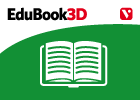
Simple and compound machines
EduBook Organización
- 2326 visitas
Machines have several connected parts and work manually or with a motor. They save us time and effort. Simple machines Simple machines only have a few parts. The most common examples are the lever, the…
-

Questions with "Who"
EduBook Organización
- 2167 visitas
Write questions beginning with Who. Use the words in brackets. Remember, if Who is the subject of the verb, you don’t need to use did in the question (e.g. Who loved Romeo?). If Who is the object, you…
-
Match. The development of navigation
EduBook Organización
- 2120 visitas
Match each sentence with the instrument or the part of a caravel ship: It allowed sailing at greater speed. It was used to check the direction the ship was travelling in. It showed the latitude from the…
-
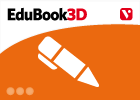
Analyse. Learn to calculate and work with graphs
EduBook Organización
- 2103 visitas
Graphs help us to understand the relationships between the magnitudes represented on them. A very common way of drawing a graph is to give magnitudes to the quantities we are studying and transfer them…
-
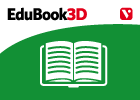
Before you start - Light and sound
EduBook Organización
- 2037 visitas
Didactic objectives Identify light as a type of energy. Describe how light is produced. Understand the difference between transparent, translucent and opaque objects. Distinguish between the reflection…
-
Effects of heat on bodies (II)
EduBook Organización
- 1988 visitas
4.1. Expansion The term expansion refers to the increase in a substance's volume. This causes a reduction in the substance's density. The opposite effect is called contraction. The particles…
-
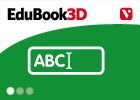
Final self-evaluation T15 05 - Art in the 20th century
EduBook Organización
- 1905 visitas
Complete the sentences with the missing words or dates: In the 1970s, architecture began combining elements from previous architectural periods with and innovative materials. was based on the…
-
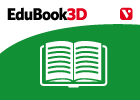
Sound and noise
EduBook Organización
- 1729 visitas
What is sound? Sound is produced by vibrating objects. We perceive sound because we use our sense of hearing. When an object produces a sound, it travels through the air or other objects (walls,…
-

Understanding the text (KET)
EduBook Organización
- 1756 visitas
Are these sentences ‘Right’ or ‘Wrong’? If there is not enough information to answer ‘Right’ or ‘Wrong’, choose ‘Doesn’t say’. They can’t open the front door because they do not…
-
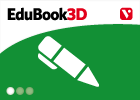
Experiment. Stable and resistant structures
EduBook Organización
- 1629 visitas
It is important to use the right material to make pillars and beams more resistant. It is also important to consider their geometric shape and position. Do this experiment to check the resistance of an…
Te estamos redirigiendo a la ficha del libro...











